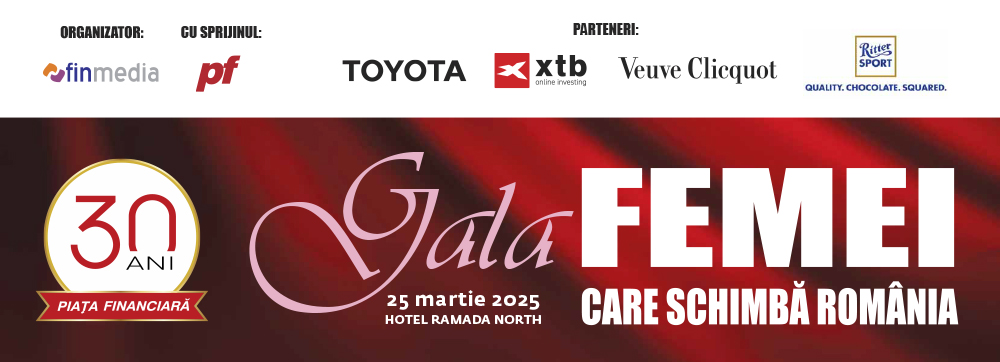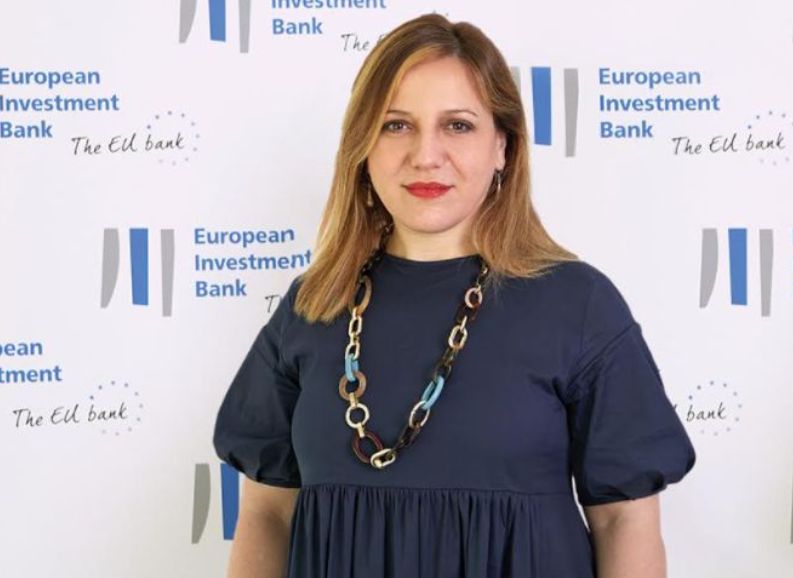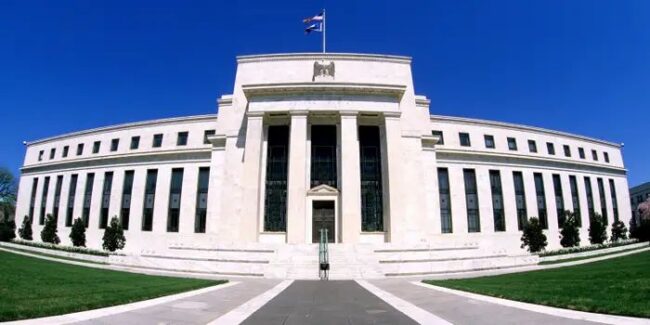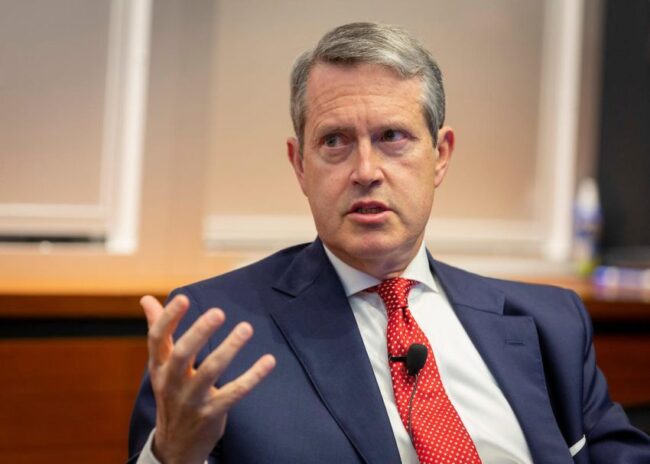*Emerging markets are never the way you expect them to be otherwise they wouldn’t be emerging. Their economy is in rapid evolution and at the same time new and fragile, they lack solid functioning public institutions, and the required decision making and vision are either not there or not mature enough. ElB Group has one of its largest offices in Bucharest full of experts helping Romanian institutions to prepare and implement EU funded projects: this is called „capacity building” yet Romania surprised me with many capable and motivated people in the public sector. The country rather still lacks leadership, vision, delegation of powers in decision-making and modern managerial skills where people are motivated, appreciated and valued for their knowledge and competences* said Lara Tassan Zanin, former president EIB Group in Romania, in an interview from Financial Market magazine.
I would ask you to start by drawing a parallel between what you expect to find, as a working environment and opportunities, in Romania, the year being 2018, when you came to Bucharest, and the reality that you became acquainted with later. Were there striking differences?
When I arrived in Romania in 2018, it was not my first experience in an emerging market: I had been in Turkey for three years back in 2014 where I opened the European Investment Bank (EIB) office in Ankara. Emerging markets are never the way you expect them to be otherwise they wouldn’t be emerging. Their economy is in rapid evolution and at the same time new and fragile, they lack solid functioning public institutions, and the required decision making and vision are either not there or not mature enough. Romania back in 2018 was experiencing Dragnea’s leadership: those were difficult times for IFls and European institutions in the country. Although the situation never prevented the ElB Group to deliver between 1 and 1.5b EUR a year to Romania, the interactions happened at project and service level, while it was hardly impossible to table more strategic and structural discussions. Starting in 2019 until today, Romania’s governments became more accessible and collaborative, and I experienced an excellent cooperation with the Government, both Victoria Palace and Ministries, and with the Presidential Palace, particularly on key priorities for Romania’s economy and population such as climate and health infrastructure, EU funds absorption and the need to mobilise support to private sector and attract investments. Today’s Romania is catching up in this in this direction but still at a slower pace than the potential of your incredible country would require.
I would also like to ask you what you liked and what you didn’t like in Romania, at the levels of economy, society, entrepreneurial environment, working procedures with the officials, etc.? What would you like to change or improve to make things go better?
At a first glance Romania is a promising yet a very challenging market to access and thrive in. It still bears some contradictions: the ‘’business as usual’’ is never easy, yet the impossible is always possible in Romania, you just need to know who are the „doers”, people dedicated, capable to deliver and interested to do the best for their country, in the public and in the private sector. Indeed, the ElB Group has one of its largest offices in Bucharest full of experts helping Romanian institutions to prepare and implement EU funded projects: this is called „capacity building” yet Romania surprised me with many capable and motivated people in the public sector. The country rather still lacks leadership, vision, delegation of powers in decision-making and modern managerial skills where people are motivated, appreciated and valued for their knowledge and competences. On the other hand, workforce – not always respected and appreciated – did not learn gratitude and loyalty to their employers. Romanian companies are the ones in Europe investing less in training and development of their employees: often employees are thrown at their job without preparation and there is no manager on site in restaurants and shops that could help them learning and improving. This means that most of people believe they know their job, that whatever they do is correct and does not favour a customer service-oriented culture, basically ‘the client is never right!’. A vicious circle is generated that does not foster gratitude, loyalty, commitment, a culture valuing professional and personal development: the learning curve remains flat. As key ingredients to change this trend, I wish for Romania more passion for results and appetite for excellence.
The EIB has an important exposure to Romania. What led the institution to invest so much in Romania? What were the most important projects started during your mandate?
The ElB has been active in Romania for more than 30 years. Since the start of EIB’s operations in the country in 1991, the Bank has signed nearly EUR 19bn of financing in favour of projects contributing to Romania’s economic and financial development. At end of 2023, EIB’s total signed exposure to Romanian counterparts stands at EUR 8.25bn, of which 60% with the public sector. In 2023, EIB lending to Romania amounted to nearly EUR 1.9n with strong presence in the transport, energy, SME sector, urban infrastructure and more recently in the health and higher education sectors. In 2023, EIF – part of the EIB Group – had a record year in Romania, driven by transactions under RRF guarantee and RRF equity mandates. Equity, guarantee and inclusive finance signatures in 2023 amount to EUR 2.7bn. Since inception, EIF financing provided in Romania exceeds EUR 4.9bn with a leverage of EUR 10.7n finance, benefitted 61,000 final recipients and supported more than 395,000 jobs. Bucharest hosts one of the largest offices of the ElB Group and Romania is the largest recipient of EIB advisory services.
During my five-year mandate, thanks to dedicated colleagues, I witnessed the first EIB loans to Romanian universities: before July 2019 universities in the country, contrarily to other EU countries, weren’t allowed to borrow from banks including public banks like the EIB. This would not have been possible without a ‘champion’, a person in the Romanian administration that takes ownership of the challenge and pushes for the result until is achieved. Rector Costoiu of Polytecnica Bucuresti was the champion in this case as he worked together with the then Minister of Education to draft the required piece of legislation and defended it in the Parliament until approval. It is primarily thanks to him that as of today 7 universities in Romania have received in total 150 m EUR of support. What universities do with the EIB money? They modernize their class and research infrastructure, get equipped with modern and digital technology for their labs, build new campuses to accommodate students and they pay salaries of researchers and postdocs in the attempt to stop the brain drain (diaspora) to other countries. All operations have benefitted from EIB Advisory: concretely the EIB paid consultants to build the financial model of universities which was then used for the due diligence of the EIB loan. As you can see it takes a village to raise a child, it takes many different products of the EIB to support higher education sector in Romania!
Another achievement during my mandate is an unprecedented support to health infrastructure with a 1.5 bn EUR support to build the first three public hospital built in Romanian in the last 30 years. Also, after more than 10 years of EIB technical assistance to the transport ministry and agencies by JASPERS and PASSA, in 2022-2023 Romania registered a record absorption of EU funds in the transport sector: you can see work sites everywhere in Bucharest (outer orbital) and in the country (highway to Moldova, A3, A7). On SMEs sector, so central to the Romanian economy, we have been trusted to distribute 1.2 bn EUR of PNRR resources in forms of equity and guarantee to support greener and more digital investments in the country. We have also provided the first loan to Autonom, a fully owned Romanian company with a remarkable example of management, leadership and vision who decided to go completely green in the business by buying a new car fleet, fully electric. A true role model for many Romanian entrepreneurs.
What essential areas does the EIB target in Romania and what should a country plan of Romania for the next 20-25 years be based on?
The EIB Group activities are demand and market driven. Indeed, we are an investment bank and not a development bank: we assess eligibility and bankability of projects presented to us by the private and public sector. As a public bank and the EU’s Climate Bank, we do not seek maximizing profit but rather implementing public policy goals, such as infrastructure, environment, innovation, SMEs. In this sense, we do not have a country strategy or a specific target for Romania. For the year ahead we will continue supporting infrastructure projects, private sector’s investment including by SMEs, and EU funds absorption. Based on my professional experience and understanding of the Romanian and regional economy, I see the largest potential in the agri-business sector with the need to develop value chain to retain largest margins instead of simply exporting raw materials: this though require public investments in primary infrastructure (irrigation) and some new pieces of legislation for example to allow farmers forming cooperatives that could ultimately borrow from banks and grow their business in the EU market and globally (https://www.fi-compass.eu/library/market-analysis/survey-financial-needs-and-access-finance-eu-agricultural-enterprises). Another promising sector is the Information and Communication Technology – already counts as 6% of the country’s GDP – and the vibrant start-ups system and VC funds. Romania has a clear asset in terms of Here the EIF contribution in the last decade has been key with roughly 270mEUR being assigned to some 10 VC and PE funds mobilising 500m EUR worth of investments. Last but not least, energy transition and green energy remain one of the biggest potentials for the country and for its positioning in the region, particularly with the magnitude of unprecedented EU funds allocated to Romania under the Modernization Fund and the PNRR: we are talking about more than 10 bn EUR in ten years. These funds have to be channelled to the private sector though, also to attract foreign direct investments. There is a tendency among Romanian politicians to think that EU funds are for public sector while the private sector can access commercial loans: there is a tendency to polarize while the equation is not so simple. Indeed, other EU countries demonstrated how smart use of EU funds such financial instruments to de-risk innovative and green private investments, allow companies to grow and preserve competitiveness vis-à-vis their EU peers. The trend is positive though as another important development is about to see light: Romania is the only EU country that does not have a National Promotional Bank. Eventually after many attempts, the Bank for Investments and Development of Romania will be operational in 2025 as milestone under PNRR and the EIB is advising the current governance exactly on setting up smart financial instruments to support private sector investments. There is an unprecedented alignment of planets – if we count also the important progress being made in the OECD accession – that can make Romania the market to watch in the next decade. The possible reconstruction of Ukraine or the stabilization of the situation with Ukraine becoming a buffer state, might open new additional opportunities including a new impulse for Costanta port and Danube inland navigation.
You also have extensive experience in neighbouring markets: what advantages does Romania have over the Czech Republic, Slovakia or possibly Turkey, in order to attract investments and develop? How should these advantages be exploited?
Compared to neighbouring EU countries, Romania has the advantage of size of the territory and market: there is in principle more land for foreign investments and higher potential to find the necessary labour force. Romania can count on diverse natural resources and enjoys a vast market in terms of clients for sales channels. Compared to Turkey, Romania enjoys being part of the European Union, with the standards brought by the acquis communitaire. But in order to exploit these advantages, Romania has to adopt a clear vision on where and how to attract foreign direct investments: which sector to locate in which region of the country, which incentives to offer under which conditions, etc. During my mandate I have witnessed the creation of the Romanian Agency for Investment and Foreign Trade: this is a good start but now we need to move to the next level. And let me say that Romanians have often a tendency to polarize, promoting foreign companies OR domestic ones? It is not a question EITHER/OR, but rather Romania’s economy to grow its full potential needs BOTH. Romanian companies for size and competences cannot replace foreign direct investments, but local companies can instead benefit from the foreign ones in terms of increased sales, adoption of modern production technologies, managerial techniques and governance, acquisition of competences. Last but not least Romania, with its universities and population size, can become a reservoir of tech and green labour force for the whole Central and Eastern European region.
Yet we do not have to forget that biggest barriers to investments in Romania are to be solved: political stability (and here the grand coalition, clearly pro-Europe, provides today comfort), lack of skilled labour force (more focus on investments in human capital is needed), lack of transport infrastructure (trend changed in 2023 when Romania had a record absorption of EU funds in transport projects and we all see the worksite across the country, the outer ring of Bucharest, the highways going north and south, etc).
What’s next for you in your professional career? What areas do you intend to develop within the EIB after the experience in Romania?
The tech vocation of Romania and the challenge to support the EU innovation capital, the struggle and economic cost to transition to a greneer energy for Romania and the whole EU, and the firm belief – particularly after my experience on the ground in the CEE region – that the private sector has a key role to play in making clean energy affordable, brought me to the decision to move to the Climate Agency of the European Commission in Brussels where I will contribute to the implementation of the Innovation Fund, a 40bn EUR programme to support EU break-through technologies to reduce CO2 emissions. I am sure this represents an excellent opportunity to grow professionally and bring back this experience to the EIB or use it for the next professional move.
Drawing a line at the end of the mandate, with what impressions did you leave Romania? What did this country represent for the EIB professional but also for the person that is Lara Tassan Zanin? What impressed you the most and where would you like to return, even as a tourist?
Let me say that I left behind me many fantastic cities and countries such as London and Turkey, but I never missed a place like I miss Romania, Romanians and Bucharest. I have often asked myself the reasons and I am not sure I found all answers. I think first and foremost I love the humanity still present in working and personal relationships here. Romanians value people, friends and family at large, they enjoy life, eating, drinking and having fun. They love traditions and nature. They are open-minded and curious. Ultimately I think I share many of the personal values of Romanians today.
From a professional perspective I grew a lot in this country as the EIB Group in involved basically in each and every sector of the Romanian’s economy, from transport to energy, from health to education, from SMEs to industry, from the capital markets to PPPs. Together with highly experienced colleagues, I had the opportunity to be involved in challenging dossiers where my experience and understanding of the local culture could have a concrete impact on the ground. I managed to develop meaningful relationships with key institutional stakeholders. I am proud to have witnessed and contributed to an epochal change in the way diversity topics are not anymore a taboo: back in 2019, I could not find a single politician, CEO, business person, ready to speak about gender equality while an increased female economic participation could be a key driver to increase the GDP (https://vertik.ro/propunerea-de-politica-publica/). Today, female participation in politics, society and business is a trendy topic, we have a government with the highest number of female ministers, parties are racing to have the highest number of female candidates. Also, I am very happy to have been among the founders and now a member of the Advisory Board of Women in Tech Romania attempting to bring more girls in the Science Technology Engineering and Mathematics careers.
Where do you see Romania’s place in the great European construction, in the medium and long run?
This is a 6-million-dollar question because the answer depends on so many factors such as the evolution of the geopolitical situation in the region and its spill-over effects on the EU economy, the results of this year’s super elections in Romania, the implementation of structural reforms in the country and many more. Let me say though that in recent years I have witnessed a growing profile of the country in Brussels and Strasbourg also thanks to a growing number of young, pro-European, active and trusted Romanian members of the European Parliament across all parties. With the neighbouring war in Ukraine and its borders with Turkey, its strategic natural resources and access to the Black Sea, its industrial production vocation, Romania is a natural candidate to be a strategic member state for the EU in the medium and long term. Romanian politician though, should be credible, consistent, stable and increasingly competent. Already with the implementation of the Resilience and Recovery Plan (PNRR in Romania) I have observed a Romanian Government better capable to act vis-à-vis the Brussels institutions as a football team with the Prime Minister as a captain, able to better articulate the country’s needs, priorities and if necessary able to ask for necessary concessions. I have seen the credibility of Romania becoming more solid in the EU and beyond and this trend should continue and possibly grow.






COMMENTS